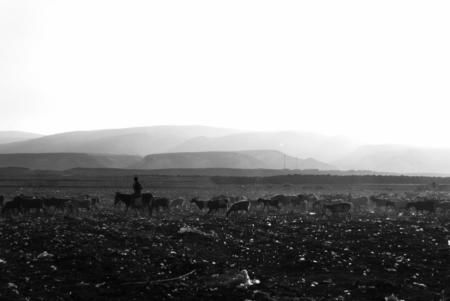For Whatever You Want
Throughout my years of ministry, in places near and far, always I come to a place of amazement when persons in trouble, grieving, in need, and broken in spirit find consolation in hearing the 23rd Psalm. For thousands of years this has been true, even to this very time. The imagery is antiquated, the meaning ever-new.
The great Jewish King David, author of many of the Psalms and the author of Psalm 23, was once a shepherd boy. In this Psalm, he places the image of the shepherd at the center of his prayer and casts God in the role of Shepherd: "The Lord is my Shepherd." The opening line is so familiar that when I quoted it at Sunday Masses, the congregation quickly recited the subsequent line using the most popular translation: "There is nothing I shall want."
The Psalm continues on with the image of each of us as a sheep and God as our Shepherd. David, in a most profound and simple way, outlines a simple yet complete set of circumstances that address our human journey and needs. Our physical needs are well cared for: "green pastures and still waters." Our very beings are refreshed and restored, and our direction in the journey made right: "He restores my soul. He guides me along right paths."
Even in dangerous times, we are freed from fear because of the presence of the watchful, able Shepherd: "Though I walk in the valley of darkness, I fear no evil, for You are with me." Accompanied by The Shepherd, the journey holds amazing promise of blessings and even reconciliation with foes: "You set a table -- perhaps even for my enemies to join me and my cup overflows."
David concludes this prayer with an absolute profession in his belief in God's loving care for him -- and for us as we pray, "Indeed goodness and mercy surround me all the days of my life -- and I shall dwell in the house of the Lord forever." The simplicity of Psalm 23 almost obscures how very sublime it is. The prayer speaks to the depths of the human heart.
While the popularity of the Psalm is widespread, it seems that the actual appropriation of the Psalm is very limited. By that I mean so many of us are fraught with the challenges of everyday life and have a sense of the heaviness of living. The worries and the stress, the long hours of work and planning, the saving and earning, the struggle to be healthy and finally to find happiness are part of the life of us all. Some of the younger members of the community feel this more intensely than others, for no one is exempt from the challenges of life.
So how can it be that we profess, "The Lord is my Shepherd, there is nothing I shall want", but are not able to hold on to this reality in the midst of our struggles? Where is the disconnect?
It seems our faith and our prayers are put aside when we step into the reality of our life. And yet it is precisely there in the come-day go-day movement of our lives that our faith is most needed. If, in those difficult moments, we embrace and internalize the actual meaning of the psalm, then we will truly feel and comprehend what it means to have the Lord as my Shepherd and to want for nothing. And we will understand why Psalm 23 has been loved and prayed for so many centuries.
- Father James Ronan is pastor of St. Mary-St. Catherine of Siena parish in Charlestown, Massachusetts



















